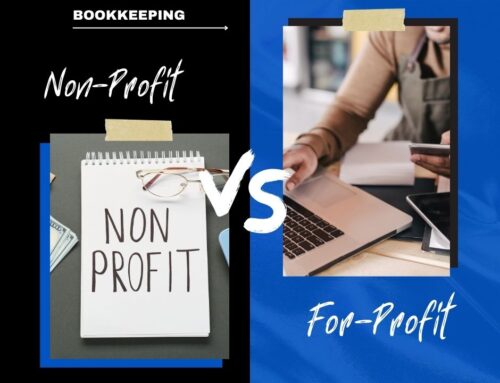As a small business owner, there’s a good chance that you’ve been handling a large portion of your company’s accounting operations and bookkeeping tasks.
Once your company started to grow, you delegated accounts payable to one staff member and accounts receivable to another. Maybe you even hired a full-time or part-time bookkeeper to create accurate financial reports and take your business decisions to the next level.
You can get away with this approach when you first start a business. But as your company scales, you need to take steps to improve your financial department.
That’s where a controller comes into play.
Regardless of your situation, there is always room for improvement. Let Naivtance Solutions explain how a controller can make your company’s accounting department a well-oiled machine…
What is a Financial Controller?
A financial controller is a mid-level manager in your financial department. They oversee all accounting functions and activities within an organization.
In large corporations, a controller would report to the head of the accounting department or to the CFO. But in a small business, financial controllers report directly to the CEO.
Your controller will become your go-to person for accounting operations, business finances, payroll processing and bookkeeping tasks. Often, small business owners believe they can bypass the need for a controller position — However, a controller plays a crucial role in small businesses, especially for growing companies.
Who Needs a Controller?
Only some small businesses need a controller.
If you just launched a startup, then a controller won’t be of the utmost importance. If your entire company is just five or six people, then a financial controller on your executive team probably isn’t warranted.
But as your company scales and your bookkeeping tasks become more complex, a controller can make your life as an owner much easier.
Another way to bring the responsibilities of a controller to your team for financial success is by outsourcing the service. Firms like Navtance in Boston, MA, offering outsourced bookkeeping services and interim CFO solutions, offer the role of a small business controller to manage your company’s finances.
Responsibilities of a Controller
The day-to-day life of a financial controller varies based on the company and its needs. Some of the tasks below will be completed by a bookkeeper and overseen or managed by a controller.
But here’s a typical list of services a controller will perform for small businesses.
Accounting Processes and Cash Flow Maintenance
A small business controller will assist with daily accounting tasks. They can process your payroll and manage accounts payables and accounts receivables.
Controllers also manage and oversee daily cash flow tasks, which are crucial for small businesses.
Depending on your situation, bringing a controller on board will alleviate some of your existing responsibilities. Even if you have one or two employees working on these tasks, a controller’s job will improve any inefficiencies in financial reports and take on some of the responsibilities that aren’t in your other employee’s job description.
A Dedicated Controller will Implement Bookkeeping Policies
Most small business owners don’t establish a sound financial strategy or official accounting procedures when launching a startup. While it’s obviously in your best interest to do so, you can get away without having firm bookkeeping policies for a while.
With that said, once you get serious about expansion and growth, you must have a concrete accounting policy in place — accounting software, accurate reporting, financial analysis, etc.
Over time, these rules and procedures will change with your business. A financial controller will help implement your bookkeeping policies and keep them up to date as your company evolves.

Financial Management Reporting
How do you know the current health of your business from a financial perspective?
The only way to figure this out is with financial reporting. However, generating key financial reports takes time. If you’re doing this alone, finding enough time to get it done regularly can be challenging. Plus, your reports may not be completely accurate without formal training and technical skills.
This disadvantages you when you need to make crucial business decisions. Let loose your internal controls…
You won’t have to worry about these tasks with a small business controller. They formally close the accounting period, post adjustments to the balance sheet and generate financial statements. A controller can inform you of any potential bookkeeping issues before they get out of hand.
Human Resources Tasks
Most small businesses do not have a dedicated human resources department. You’re probably handling HR responsibilities on your own.
Controllers can do things related to:
- Answering questions about employee benefits
- 401(k) activity.
- Manage employee files.
- Assist with hiring and training of new employees.
Basically, a controller can take on the role of an HR manager once your business scales and HR tasks become more complex.

Establish an Accounting Department and Accounting Staff
Right now, your entire accounting department might just be you. But fast-growing small businesses will eventually need to bring new members to their accounting team to manage accounting functions.
You can’t handle all your bookkeeping and financial tasks forever.
Once you hire a few employees, you can bring in a financial controller to help oversee any additional expansion in the accounting department.
If you plan for your accounting staff to go from three to twelve employees over the next few years, you’ll need some help with this process. Controller services can make sure the expansion goes according to plan.
Implement Software
Bookkeeping software will make your accounting process more efficient. Your financial controller will spend less time handling manual data entry and more time focusing on essential tasks.
But what software should you use? What features do you need? Who will train your employees to ensure they know how to use this new technology properly?
A controller thoroughly understands accounting software and will know what’s best for your business. They know about all the best cloud-based accounting solutions on the market today and will select the perfect option for your small business.
Audits
Controllers will tell you the best time to perform internal audits. These can be small and department-specific, as well as extensive audits of the entire company.
Not only will a controller let you know when to conduct audits, but they’ll also be available to facilitate and complete the tasks associated with an audit.
A controller can even prepare for an IRS or third-party audit.
When it Comes to Financial Controllers, Navtance can Build Your Accounting Team
There comes a point in every small business owner’s life when their daily tasks become seemingly impossible.
At times, it may be difficult for you to delegate responsibilities to others. But your company will never be able to grow effectively if you’re the one doing all the work.
The bookkeeping department will become a top priority as your small business scales. That’s when you should consider hiring a controller.
Use this guide as a resource to help you determine when your small business is ready for a controller. Alternatively, consider an outsourced bookkeeping service to assist with the abovementioned responsibilities.





